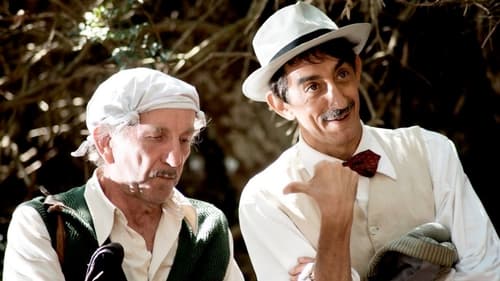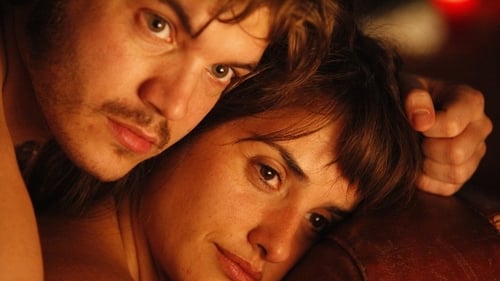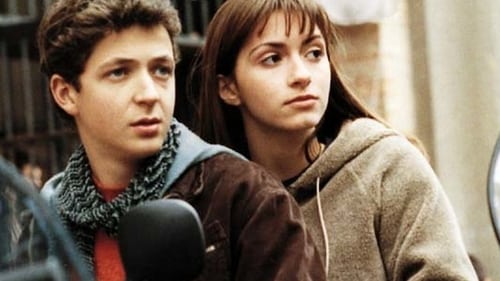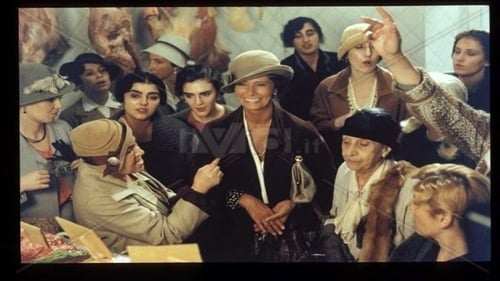Luca De Filippo
Nacimiento : 1948-06-03, Roma
Muerte : 2015-11-27

Capitano
Members of the Camorra on the run and actors seeking for authority meet after a shipwreck on an island-prison. The theatre turns into a free zone where everyone may not be able to recover their social role but for sure their humanity. Somebody can even get love back. Shakespeare and Eduardo De Filippo blend together in a picaresque comedy full of coup de théâtre.

Armando
Una mujer soltera regresa a Sarajevo 16 años después del asedio que sufrió la ciudad durante la guerra de los Balcanes. En esta vuelta le acompaña su hijo adolescente, que nunca llegó a conocer a su padre.

Patrizio
La vida de Silvio, un adolescente de dieciséis años, sufre un vuelco cuando el colegio al que asiste es ocupado por un comité estudiantil. Más interesado por las chicas que por la política, Silvio sueña con encontrar el amor. A pesar de los cambios políticos y de la incomprensión de sus padres, conseguirá por fin encontrar a la chica de su vida.

Don Peppino Priore
Es el retrato de una familia y de una sociedad, napolitana, de sus vicios, sus pequeñeces, sus costumbres; y de las diferencias entre el amor y el matrimonio. El sábado se prepara la gran comida familiar del domingo, Rosa prepara su ragú; el domingo, la comida familiar que incluye una pareja de vecinos, plagada de tensiones, desembocará en una violenta escena de celos de Peppino cuyo absurdo abocará el lunes en un final feliz para todos.

Luigino Poveretti

Tommasino, loro figlio
Gennareniello, a crazy inventor, is married to Concettina and lives at home with his son Tommasino, full of tics, his spinster sister and with Matteo, a drawing master who makes plans for his inventions. Driven by his friends, the man courts the young teacher Anna and when his wife notices it, he is forced to run away from home, overwhelmed by the scorn of derision of friends and acquaintances who come to disguise him as a dandy, thus offending his dignity.


Rodolfo
The comedy, centered on five characters (Rita, Rodolfo, Agostino, Bettina, and Don Attilio - "o viecchio pazzo"-), has as background the Italy of the 60s between the economic boom and the perennial unemployment crisis. The cylinder, well explained by "Agostino-Eduardo" in the comedy, is a representation of power, designed to intimidate the ignorant for its only evocative "power". It can also be seen as a sort of "Pirandellian mask", where the character of Augustine wears it to defend himself and represent something that he is not.

Tommasino
Luca Cupiello, like every Christmas, prepares the crib, amid the disinterest of his wife Concetta and his son Tommasino. Ninuccia, the other daughter, writes a letter to her husband in which she communicates that she leaves him for her lover. The letter happens in the hands of Luca who hands it over to his son-in-law, who thus learns of his wife's betrayal. During lunch on Christmas Eve, the two rivals, who were confronted by Luca's carelessness, clash violently.

Furio La Spina

Vincenzo De Pretore

Alberto De Stefano

Thanks to the legacy of an English lord, the cobbler Andrea has become a baron and now has delusions of nobility: he wants a high-ranking marriage for his stepdaughter Virginia and does not recognize the brothers of his wife, Rosina and Michele, even after the latter has saved the his house from a fire. Virginia does not like her promised Marchese Alberto, but Felice Sciosciammocca, a shy and poor master of calligraphy, who reciprocates her. But when Felice learns that the girl will soon marry another, out of spite he accepts the court of the late Marquise Zoccola, Alberto's mother.

Happy Sciosciammocca has a double life: he plays sacred music in the convent of Rondinelle and teaches music to the educators, at night he goes to Naples where he is known as the actor.

Peppiniello







